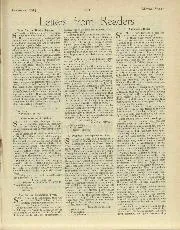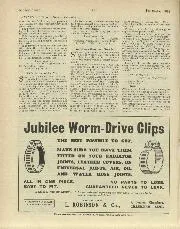

From an Owner of "Chitty"
From an Owner of" Chitty." SIR,—May I take this opportunity of correcting Mr. Christian, manager of the Efficiency Garage Co., Ltd., whose letter appears in your issue of last month.…
” Lionsto.F.ss (..AfficiAGI….. by L. ‘I’. C.
Bon (Croodoble, Oriinge Street, 11″.C.2, 196 pp., 2(1/-).
This book is neither very good nor is it bad. It is it comise history of meeltanisati4at oit the roads of England from the days of what Ntr. Bolt calls the ‘• early phnitives,” the steam carriages of the 1800s, through. the dawn of’ petrol traction right. up to resent limes. The fact is that to tell such a story in 196 small pAges, you have to be superficial. That Roll has managed to bring jut some unniand, if not competely new, material here and there, Darwin’s observations on the passibility of the mechanicallypropelled carriage for instance, and that he writes absorbingly as well as ineuratelv. is therefore all the more to his credit. Naturally. in mentioning many famous British ears be has to be very superfivial indeed about each one, but even so he manages to work in periamal ance4lotes about his £6 G.N. that he owned iuu 1029 and about a run in a 1921 Stanley steamer, touches one hardly expected to find in a history of this kind. Further, Bolt ” dresses down ” the modern car so It ,roughly in his later chapters as to stamp him a right royal ehampion of the vintage cause. Nor are his arguments, and they touch on practically every asp-et, of design and construction, easily dip used of. There are also two long chapters on ” The Racing Car ” and ” The Spirts Car.”
So Bolt’s latest book isn’t quite the dull history it parparts to be. We could not agree more fully wit Ii his dislike of modern ears and times. but unfortunately towards the end he lapses into somewhat stunted ” journalese ” in expressing his sentiments, a trend which. for this reviewer, spailt his descriptions of old country houses in his otherwise excellent ” Narrow Boat.” The illustrations are nicely reproduced, so it is all the Inure unfortunate that we have seen most of them before.—W. B.